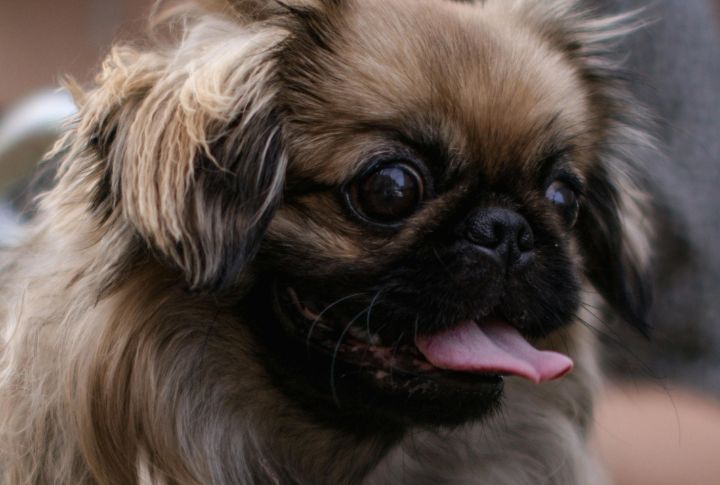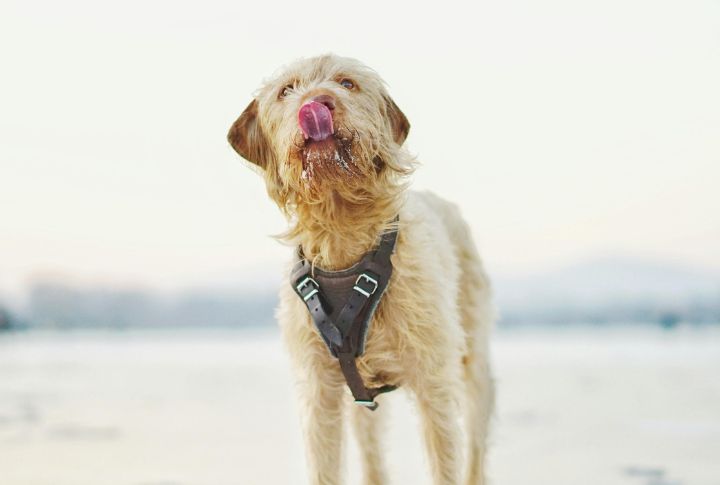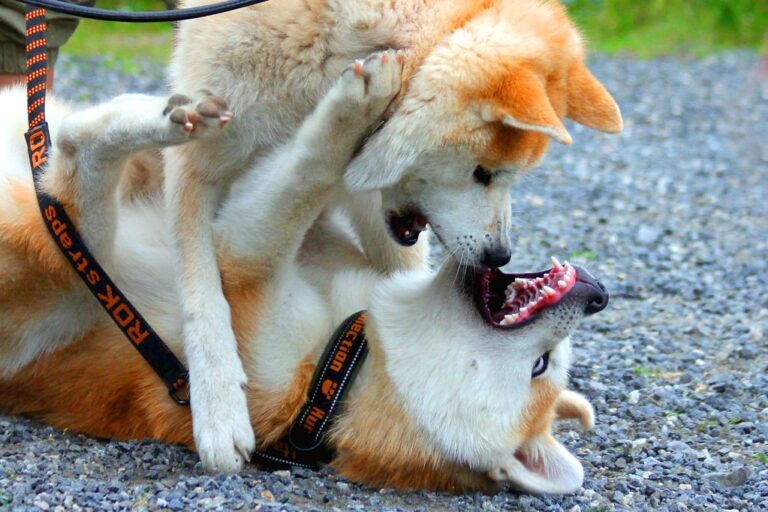The Reasons Behind Your Dog’s Air-Licking Habit

Does your furry pal sometimes stick out their tongue and lick thin air? You’re not alone in noticing this odd behavior. Even though this peculiar habit may seem amusing, it usually sparks curiosity and concern among dog parents. Let’s dig into the reasons behind this quirky habit.
Nausea or Upset Stomach

Your dog might lick the air when feeling queasy. This can also be a coping mechanism when they develop digestive issues like acid reflux. If you notice this behavior along with vomiting or loss of appetite, then it’s time for a vet check-up.
Dehydration

Air licking can sometimes signal that your dog is thirsty. They might be trying to generate saliva to moisten their mouth. Make sure your pup always has access to fresh water. If they seem excessively thirsty despite drinking plenty, then it might be a symptom of an underlying health issue.
Dental Issues

Tooth pain or gum problems can cause dogs to lick the air. They’re trying to ease discomfort or dislodge something stuck in their teeth. Check your pup’s mouth for swelling, bad breath, or visible issues. Regular dental care, including brushing and chewing, can help prevent these problems.
Compulsive Behavior

Some dogs develop air licking as a nervous habit. It might start as a response to stress but become a compulsion over time. So, try looking out for what triggers in their environment that might be causing anxiety. Providing mental stimulation and a consistent routine can help reduce compulsive behaviors.
Smell Investigation

Dogs have an incredible sense of smell; sometimes, they’re just trying to get a better whiff. Air licking helps them capture scent particles and send them to their olfactory glands. Next time you see this, take a sniff yourself—there might be an interesting smell you’re missing!
Attention-Seeking Behavior

Your dog might have learned that air licking gets your attention. If you react every time they do it, they might repeat the behavior for more interaction. Try ignoring the behavior and rewarding calm, relaxed postures instead. This can help break the cycle if attention-seeking is the cause.
Partial Seizures

In rare cases, air licking can be a sign of partial seizures. These mild seizures might not look like the full-body convulsions you’d expect. If the licking is repetitive and may be accompanied by other odd behaviors, consult your vet. They can run tests to rule out neurological issues.
Obsessive-Compulsive Disorder (OCD)

Dogs can develop OCD-like behaviors, and air licking might be one manifestation. This often stems from anxiety or stress that’s gone unchecked. You might notice your pup engaging in this behavior during specific situations or times of the day. Working with a dog behaviorist can help identify triggers and manage this condition.
Foreign Object

Sometimes, air licking may indicate that something is stuck in your dog’s mouth or throat. So, they might be trying to dislodge a small object or a bit of food. If you suspect this, then carefully check their mouth to avoid choking hazards. Make sure to pay a visit to the vet if it persists.
Cognitive Dysfunction

Older dogs might develop this habit as part of cognitive decline. It’s similar to how some elderly humans develop repetitive behaviors. If your senior pup shows other signs of confusion or changes in behavior, discuss cognitive support options with your vet. There are diets and supplements that can help.
Allergies or Skin Irritation

Allergies can make your dog’s skin itchy, leading to air-licking as a form of relief. Your dog might be trying to reach an itchy spot on its body. Check for any redness, swelling, or excessive scratching. If this is the cause, allergy tests and treatments from your vet can provide relief.
Boredom or Habit

Occasionally, it’s just a quirky habit your dog has picked up. This might start out of boredom and become a go-to behavior. So, you want to increase your dog’s mental and physical activities. Keep them engaged and ensure playtime is more productive.
Response to Medication

Certain medications can cause increased thirst or nausea, leading to air licking. Let your vet know if you’ve recently started a new medication and notice this behavior. They might need to adjust the dosage or switch to a different treatment option to reduce side effects.
Sensory Processing Issues

Some dogs may lick the air due to sensory processing differences. This could be linked to neurological quirks or heightened sensitivity to certain stimuli. You might notice your dog air-licking more in noisy environments or when exposed to bright lights. Creating a calm space and using desensitization techniques can help manage these sensitivities.
Fly-Snapping Syndrome

Fly-snapping syndrome occurs when dogs appear to snap at invisible flies. This often involves air-licking and can be related to seizures or visual disturbances. A neurological exam might be needed if your dog seems to be reacting to things that aren’t there.





